Are you puzzled by the complexities of your latest rental bill? You're not alone! Many tenants find themselves overwhelmed with the various charges and fees that can make their monthly statement seem confusing. Let's break it down and explore the key components togetherâkeep reading to uncover tips that will help clarify your rental billing experience!
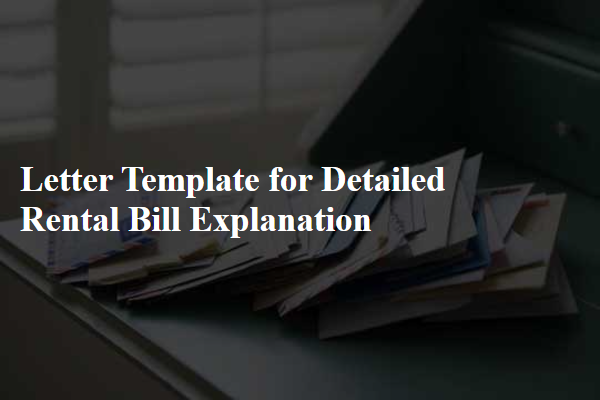
Tenant and Landlord Information
A detailed rental bill typically includes critical information to ensure clarity in transactions between tenants and landlords. Tenant information should encompass the full name, rental unit number, and contact details, while landlord details must include the property management entity or individual landlord's name, address of the management office or landlord, and contact information. The billing statement should clearly outline the rental period, start and end dates, monthly rental amount, utility costs (such as electricity, water, and gas) for the specific month, maintenance fees, and any additional charges (for instance, late fees or pet fees). Each item should be itemized to provide transparency, allowing tenants to understand exactly what they are being charged for and enabling effective communication regarding any discrepancies. The rental bill should conclude with the total amount due, payment deadline, and accepted payment methods to streamline the payment process.
Itemized Charges and Descriptions
An itemized rental bill provides transparency regarding specific charges incurred during the rental period. Typical categories in the bill may include monthly rent, usually due on the first of each month, security deposit, often equivalent to one month's rent, maintenance fees, which cover routine repairs and landscaping services within the property, utility charges for services like electricity and water, usually based on actual consumption, and late fees, which may apply if rent is not paid within a specified grace period, often ranging from 5 to 10 days. Additional costs may arise from amenities, such as internet and cable services, gym access fees, or parking charges, which should also be clearly outlined in the statement to ensure clarity for the tenant. Each item should include relevant dates, amounts, and specific reasons for the charges to enhance understanding and promote open communication between the landlord and the tenant.
Dates and Billing Period
The rental billing period typically spans one month, commencing on the first day of each month and concluding on the last day. For example, a rental period from January 1 to January 31 generates the associated monthly bill. It is essential to note the pro-rata adjustments for partial months, which occur if a tenant moves in or out mid-month, affecting the total due. In addition, due dates for rental payments are often specified in the lease agreement, commonly set for the first of the following month, ensuring tenants maintain a clear understanding of payment timelines.
Payment Instructions and Due Date
A detailed rental bill explanation includes essential payment instructions and the due date for timely financial obligations. Renters, typically residing in leased properties such as apartments or houses, should note the total rental amount due, often reflecting monthly charges (e.g., $1,200 for a two-bedroom unit in downtown Los Angeles). Payment methods may include options like online banking transfers, credit card payments, or traditional checks. Due dates usually occur on the first day of the month, so for example, a January 1st deadline ensures adherence to lease agreements. Late fees often apply (usually around $50 or more) if payments are not received by a specified grace period, which could extend to the 5th of the month. Accurate documentation assists renters in maintaining financial responsibility and avoiding unnecessary penalties.
Contact Information for Inquiries
Contact information for inquiries regarding the detailed rental bill, such as the monthly charges, security deposit, and other fees, is crucial for tenants wanting clarity. The rental office phone number, often local to the property management service, provides immediate assistance. An email address ensures written communication for detailed questions, allowing tenants to attach any relevant documents, such as a previous bill or communication. Additionally, office hours (typically between 9 AM and 5 PM, Monday through Friday) indicate when tenants can visit in person to discuss their billing concerns directly with a property manager or accountant, ensuring thorough and timely responses to inquiries.

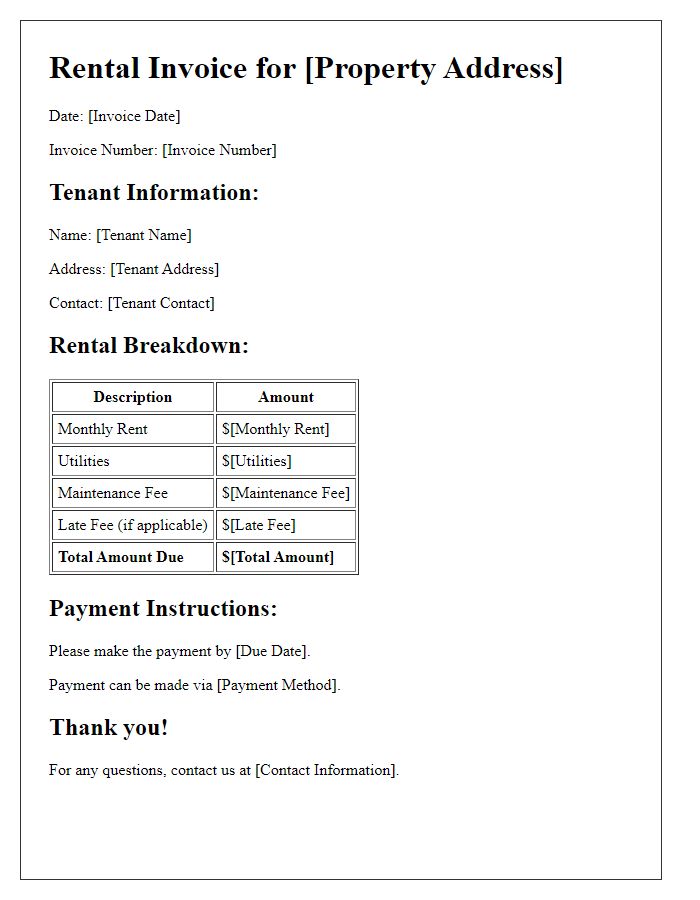
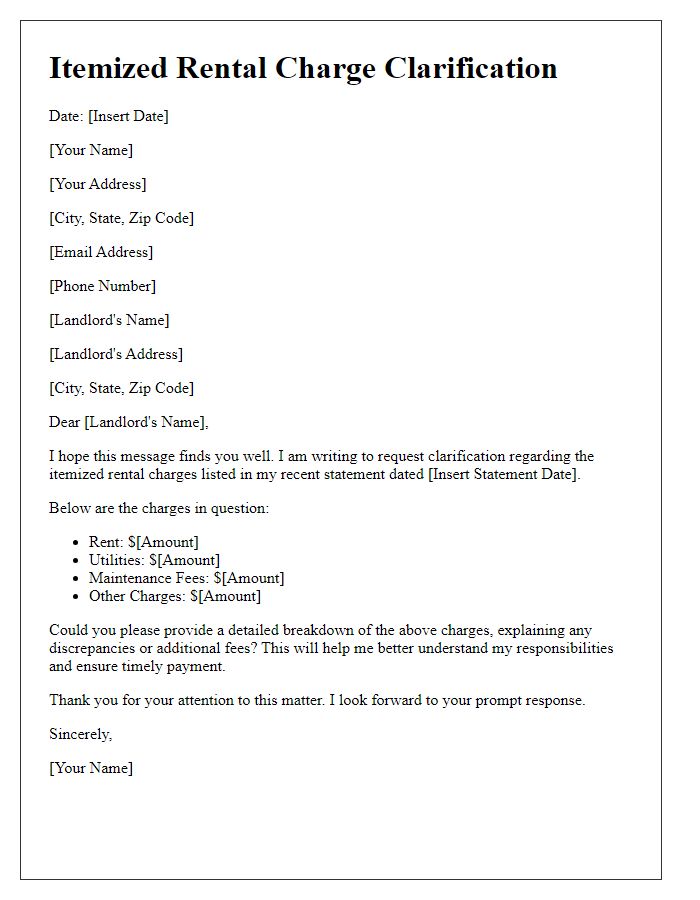
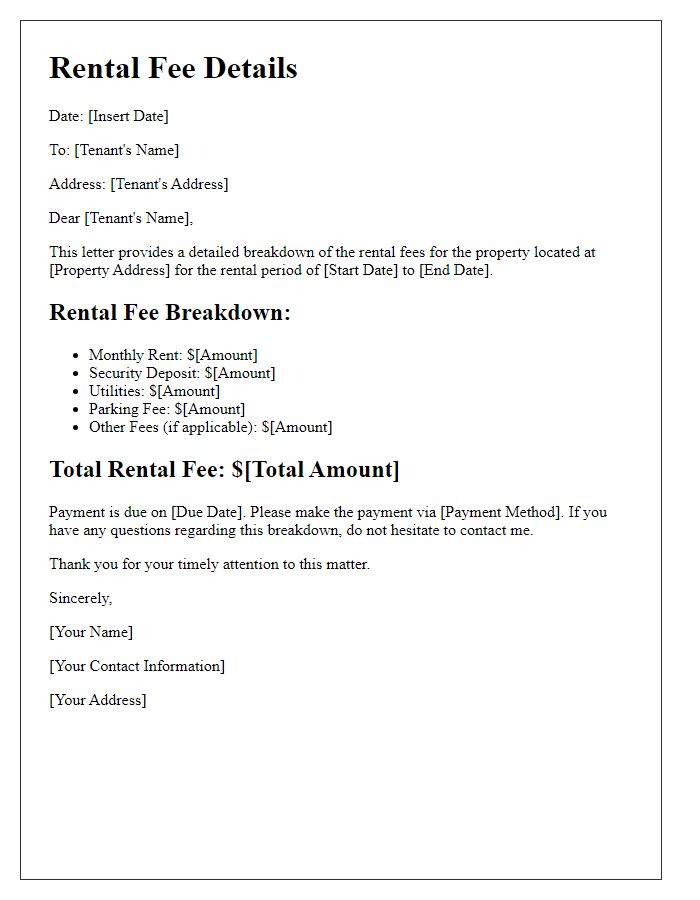
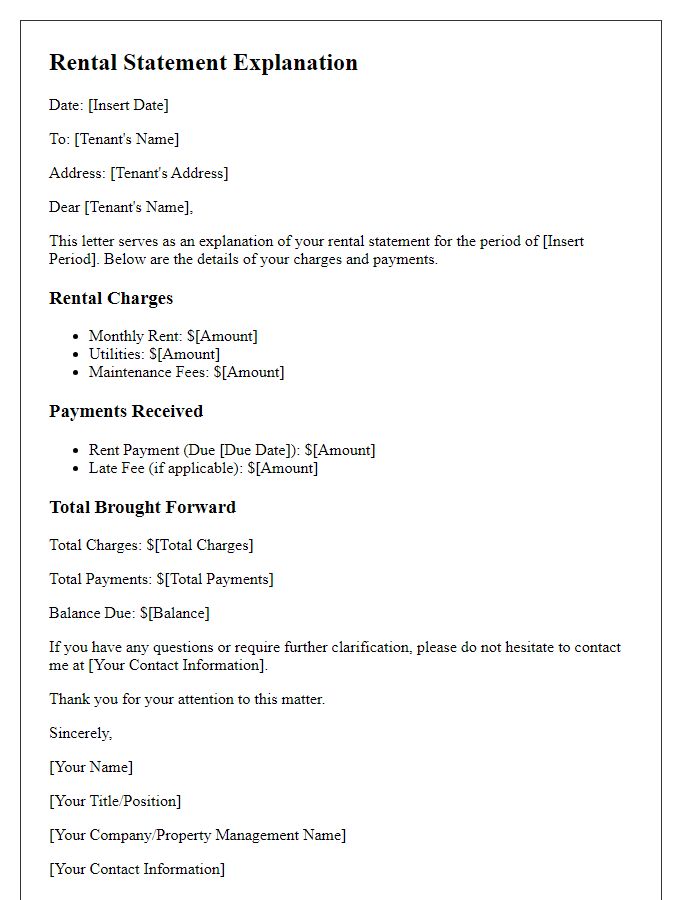
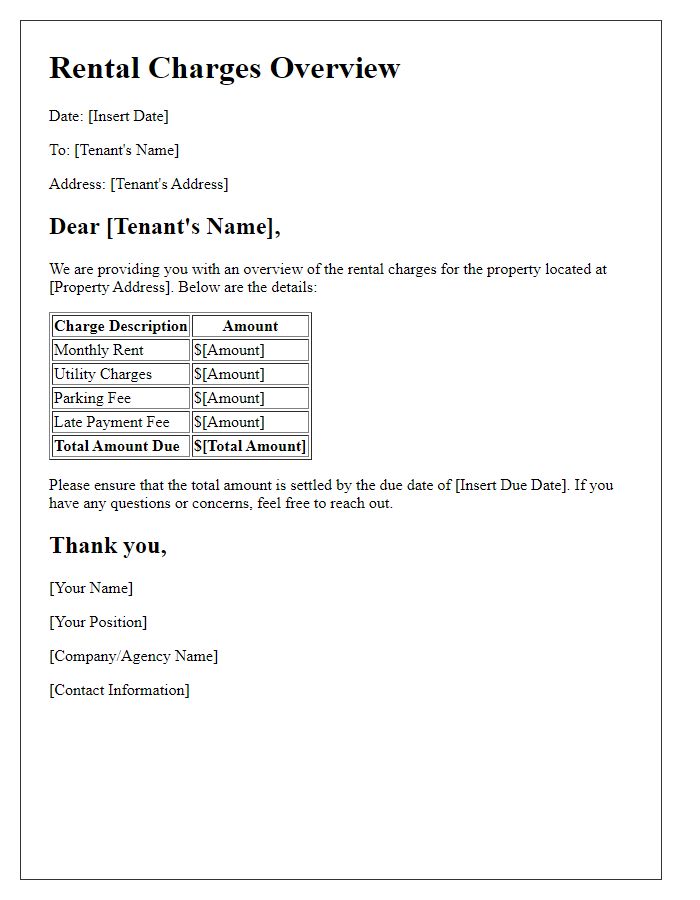
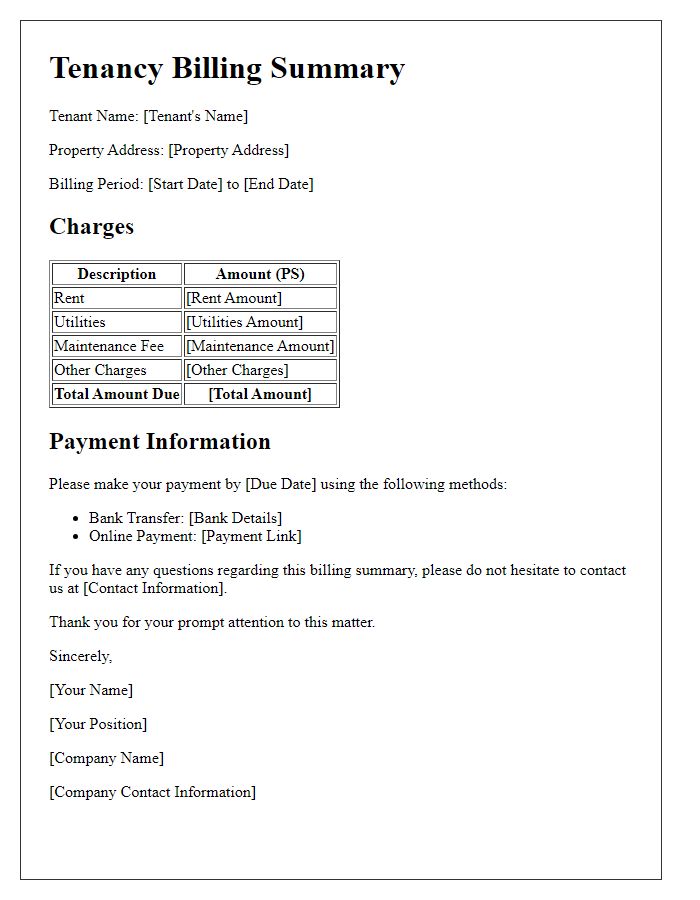
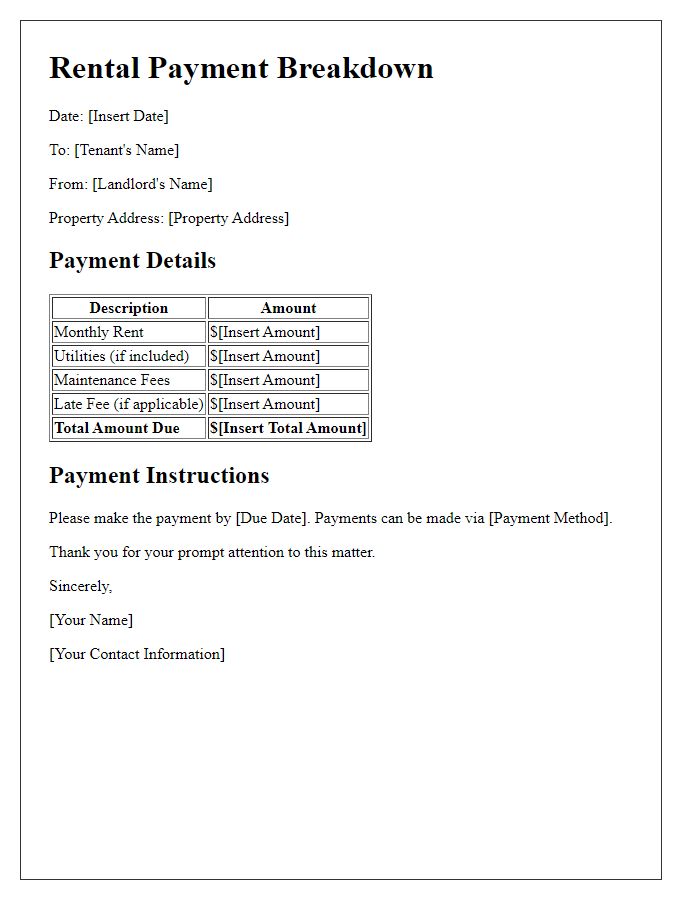
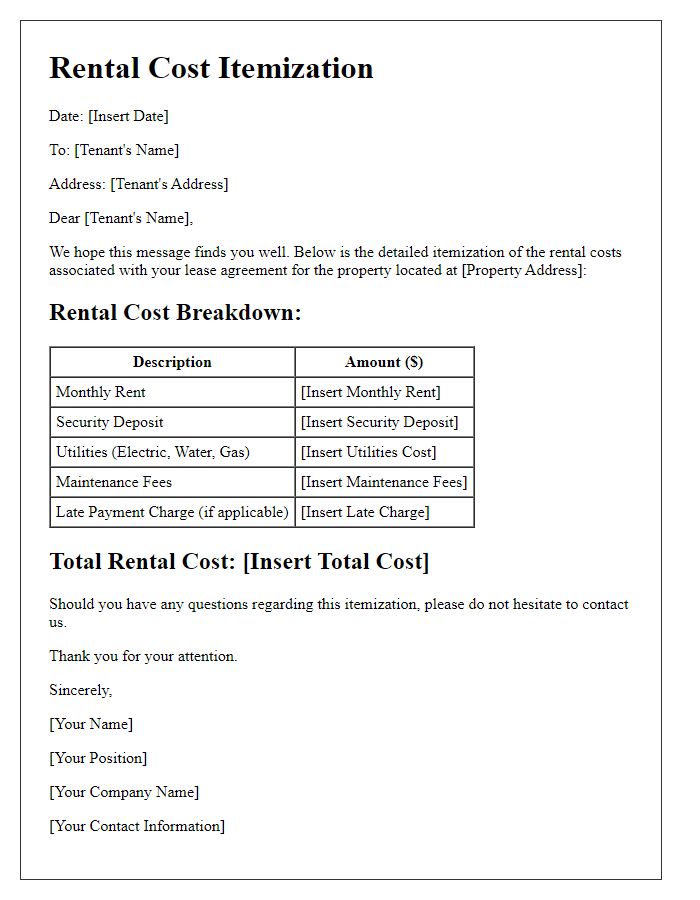
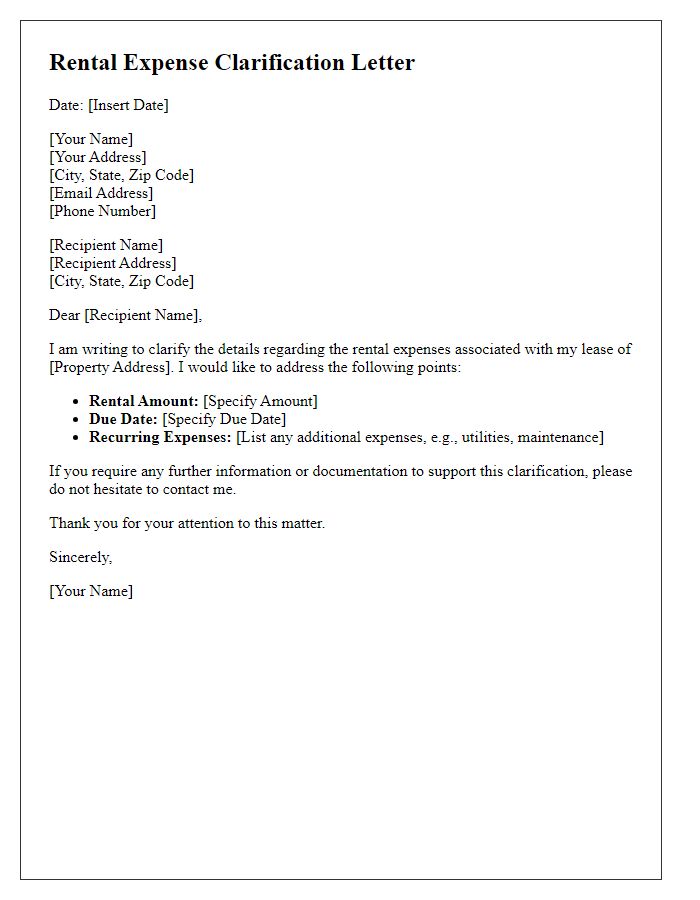
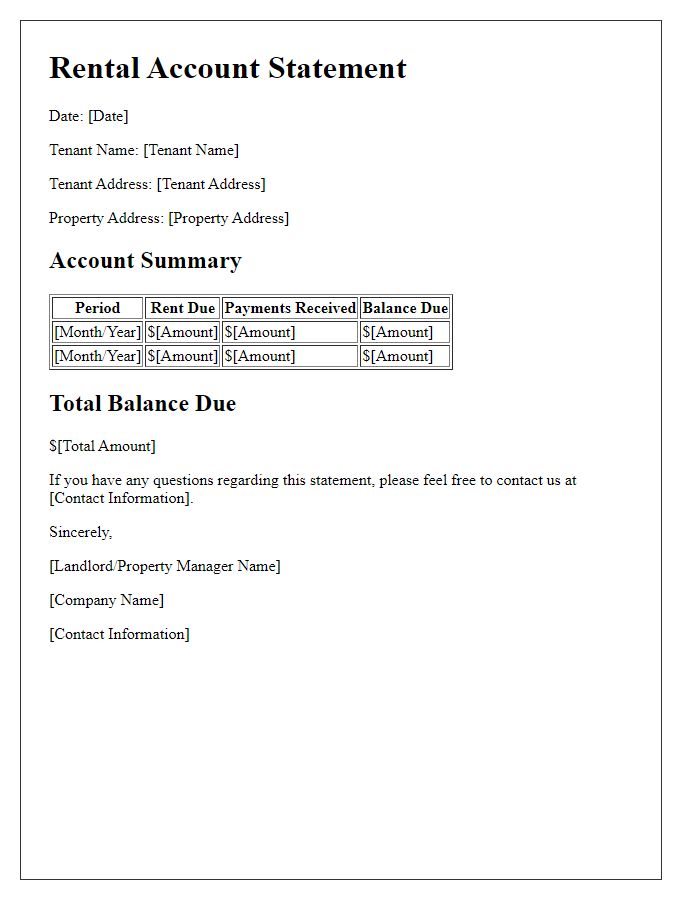

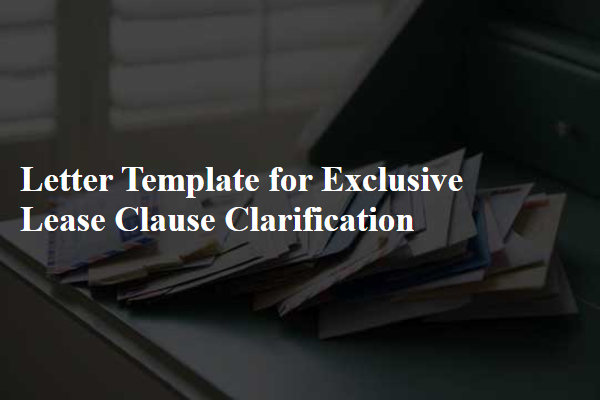
Comments